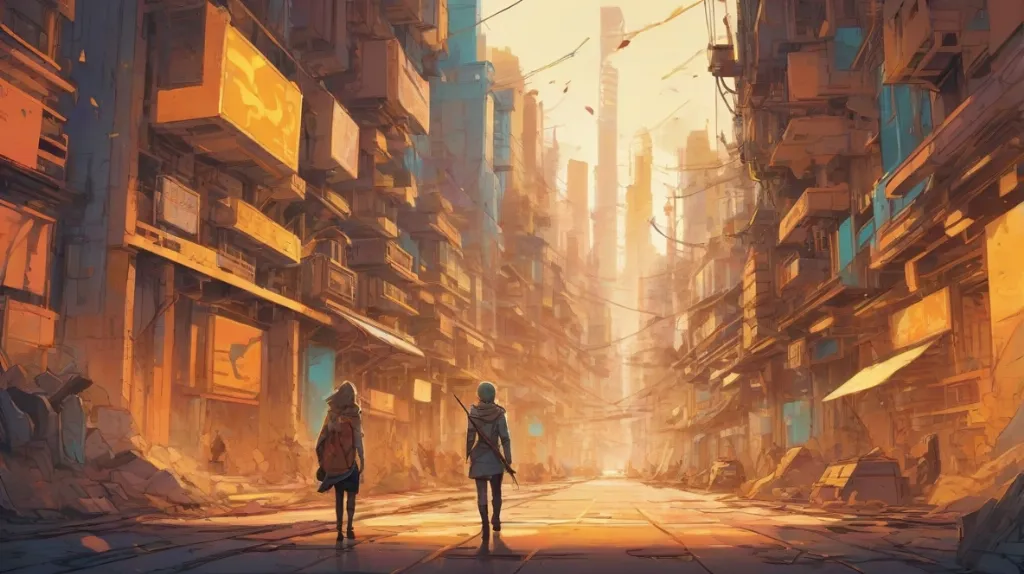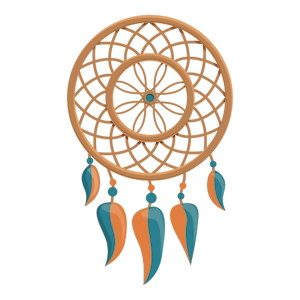What Does It Mean to Dream of Return ?
Posted on: November 3, 2024
Last updated: February 19, 2025
‘Return’ symbolizes the desire for reconciliation, closure, and emotional healing. It reflects the subconscious mind’s quest to revisit past experiences and confront unresolved issues, often leading to personal growth and self-awareness.

What does Return mean in a dream?
- ‘Return’ symbolizes the desire for reconciliation, closure, and emotional healing. It reflects the subconscious mind’s quest to revisit past experiences and confront unresolved issues, often leading to personal growth and self-awareness.
The symbol of ‘Return’ in the realm of dreams carries a profound significance that often reflects the subconscious mind’s desire for reconciliation and closure. This element can manifest in various forms, such as returning to a place from the past or reconnecting with a person who once held great importance. The act of returning is not merely physical; it can also symbolize emotional healing and the quest for understanding one’s past decisions. In many cultures, this theme resonates deeply, as it evokes feelings of nostalgia and the longing for what once was.
In a dream book, the interpretation of ‘Return’ can vary based on the context of the dream. For instance, returning to a childhood home may signify a need to revisit old memories or confront unresolved issues. Alternatively, the return of a lost loved one in a dream may indicate a desire for closure or a need to process grief. The emotional undertones of such dreams can be rich and complex, often requiring introspection to fully grasp their meaning.
Moreover, the symbol of ‘Return’ can also be linked to the cyclical nature of life. It suggests that experiences, both good and bad, often come back around, providing opportunities for growth and learning. This cyclical aspect can be empowering, reminding individuals that they have the ability to change their narrative and make different choices moving forward. The notion of returning can also evoke feelings of safety and comfort, as it often relates to familiar places and faces.
Ultimately, understanding the symbol of ‘Return’ in dreams involves delving into personal experiences and emotions. It is essential to consider the specific circumstances of the dream, as well as the feelings associated with it. By exploring these elements, one can uncover deeper insights into their current life situation and emotional state. The journey of returning can be both a physical and emotional exploration, leading to greater self-awareness and healing.
Meaning in dream books
Revisiting Childhood Memories
From a psychoanalytic perspective, ‘Return’ can symbolize the desire to revisit childhood memories. This may indicate a need to heal past wounds or to reclaim innocence and joy that may have been lost over time.
Fear of Change
The dream of ‘Return’ might also reflect a fear of change. It suggests that the dreamer is grappling with transitions in their life and may be longing for the comfort of familiar situations.
Integration of the Self
Finally, ‘Return’ can signify the integration of different aspects of the self. This involves reconciling various parts of one’s personality, leading to a more cohesive identity and emotional balance.
Reconnection with the Past
The symbol of ‘Return’ often signifies a reconnection with past experiences. It may suggest that unresolved issues or memories are surfacing, urging the dreamer to address them for personal growth.
Cycle of Life
In esoteric interpretations, ‘Return’ can represent the cyclical nature of life. It reminds us that endings lead to new beginnings, and embracing this cycle can bring about transformation and renewal.
Spiritual Journey
The ‘Return’ symbol may also indicate a spiritual journey back to one’s true self. This can involve rediscovering lost passions or reconnecting with one’s spiritual beliefs, leading to a deeper understanding of oneself.
Return in different cultural contexts in dreams
In various cultures, the concept of return holds significant meaning, often intertwined with themes of nostalgia, reconciliation, and personal growth. In Western culture, the idea of returning can symbolize a journey back to one’s roots, suggesting a desire to reconnect with past experiences or relationships. This notion is frequently depicted in literature and film, where characters embark on quests that lead them back to their origins, emphasizing the importance of understanding one’s history to move forward. Such narratives resonate deeply, reflecting the universal human experience of seeking closure and understanding.
In Slavic traditions, the return is often associated with the cyclical nature of life and the seasons. The concept of returning to the homeland or to family is steeped in cultural significance, representing a reconnection with ancestral ties and the wisdom of previous generations. Folklore often highlights the importance of these returns, portraying them as moments of revelation and healing, where individuals rediscover their identity and place within the larger tapestry of their community.
Eastern cultures also embrace the symbolism of return, particularly in the context of spiritual journeys. The act of returning can signify a pilgrimage or a quest for enlightenment, where individuals seek to return to a state of harmony and balance. In many Eastern philosophies, this journey is not just physical but also metaphorical, representing the inner journey one must undertake to achieve self-realization and inner peace. The return thus becomes a vital aspect of personal transformation and spiritual awakening.
In Oriental traditions, the return often embodies the reconciliation of opposites, such as the yin and yang. This duality highlights the importance of balance and the necessity of embracing both light and dark aspects of life. The returning to a state of equilibrium is seen as essential for personal and communal well-being. Through rituals and practices, individuals are encouraged to reflect on their journeys and to recognize the significance of their returns as transformative experiences that shape their identities and relationships.
Return in other contexts of use
Return to a childhood home
This symbolizes nostalgia and unresolved feelings from the past, suggesting a desire to reconnect with one’s roots.
Return from a journey
This signifies completion and the beginning of a new chapter, reflecting personal growth and experiences gained.
Return of a lost item
This represents recovery and the reclaiming of something valuable, indicating a sense of closure or resolution.
Return to a former relationship
This often points to lingering emotions and the possibility of rekindling old flames, highlighting the importance of past connections.
Return to a familiar place
This evokes feelings of comfort and safety, suggesting a need for stability in times of change.
Return to a previous job
This indicates a desire for familiarity and security, often reflecting dissatisfaction with current circumstances.
Return of a friend
This symbolizes reconnection and the rekindling of friendships, emphasizing the importance of social bonds.
Return to a previous state of mind
This suggests a longing for peace or simplicity, indicating a desire to escape current stresses.
Return to school
This represents a quest for knowledge and personal development, often indicating a need for self-improvement.
Return to a hobby
This signifies a rekindling of passion and creativity, suggesting the importance of self-care and personal interests.
Return of a family member
This symbolizes healing and reconciliation within family dynamics, highlighting the importance of familial ties.
Return to a favorite vacation spot
This evokes feelings of joy and relaxation, suggesting a need for escapism and leisure in life.
Return of good health
This signifies recovery and rejuvenation, indicating a positive shift in well-being and vitality.
Return of a pet
This symbolizes loyalty and companionship, emphasizing the emotional bonds we share with animals.
Return to a past mistake
This suggests the need for reflection and learning from previous experiences, highlighting personal growth.
Return to a past era
This evokes nostalgia and a longing for simpler times, indicating a desire for stability amidst chaos.
Return of a lost love
This signifies unresolved feelings and the potential for rekindling romance, emphasizing emotional connections.
Return to a familiar routine
This symbolizes comfort and predictability, suggesting a need for structure in daily life.
Return of a trend
This indicates the cyclical nature of life and fashion, suggesting a revival of past interests or styles.
Return to a former self
This signifies self-discovery and acceptance, highlighting the journey of personal evolution.
Return of a memory
This symbolizes reflection and the importance of past experiences in shaping identity.
Return to nature
This evokes feelings of peace and grounding, suggesting a need for connection with the natural world.
Return of a tradition
This signifies the importance of cultural heritage and the desire to maintain familial or societal bonds.
Return from the dead
This symbolizes transformation and rebirth, indicating a significant change in perspective or life circumstances.
Return to a previous lifestyle
This suggests a longing for the comfort of the past, indicating dissatisfaction with current choices.
Return of a mentor
This signifies guidance and support, emphasizing the importance of wisdom in personal growth.
Return to a favorite book
This evokes comfort and familiarity, suggesting a need for escapism through literature.
Return of a trend
This signifies the cyclical nature of culture and interests, suggesting a revival of past passions.
Return to a peaceful state
This symbolizes inner calm and balance, indicating a desire for tranquility in life.
Return of a lost opportunity
This signifies regret and the potential for second chances, emphasizing the importance of seizing moments.
Return to a place of worship
This symbolizes spiritual reflection and connection, indicating a need for guidance and support.
Return of a long-lost relative
This signifies reconciliation and healing within family dynamics, highlighting the importance of familial ties.
Return to a sense of purpose
This symbolizes clarity and direction, indicating a renewed focus on personal goals and values.


Comments posted under the entry: 0
The user must be logged in to comment or view comments.